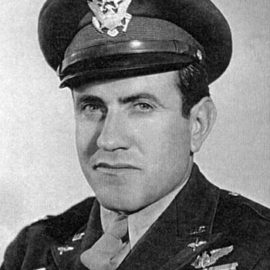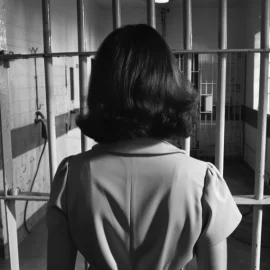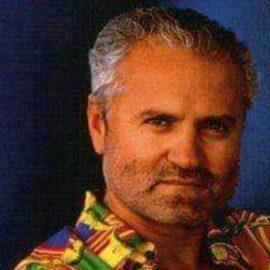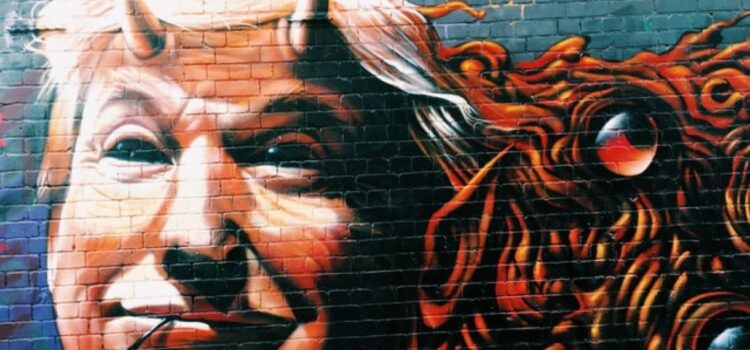
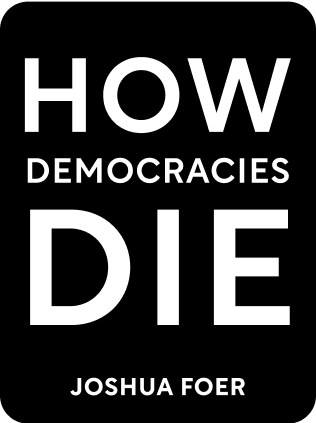
This article is an excerpt from the Shortform book guide to "How Democracies Die" by Steven Levitsky and Daniel Ziblatt. Shortform has the world's best summaries and analyses of books you should be reading.
Like this article? Sign up for a free trial here .
Is Donald Trump an authoritarian? What signs of authoritarianism does Trump exhibit?
According to Levitsky and Ziblatt, the authors of How Democracies Die, Donald Trump exhibits clear authoritarian tendencies. They state that such a figure becoming the nominee of a major political party was an unprecedented development in American politics. Further, they state that GOP leaders faced a choice in the general election: to stand with Trump or to stand for democracy.
In this article, we’ll take a look at what makes Donald Trump authoritarian, according to Levitsky and Ziblatt.
Standing With Trump vs. Standing for Democracy
Levitsky and Ziblatt argue that the final failure of the GOP to stop Donald Trump—a candidate whom they regard as deeply abnormal and authoritarian—came in the general election against Hillary Clinton.
They posit that Trump satisfied all four of their criteria for authoritarianism:
- He rejected the rules of normal democratic competition by accusing the Democratic Party of using illegal immigrants to perpetrate a massive voter fraud scheme and indicated that he would not accept the results of the election if he lost.
- He denied the legitimacy of his political opponents with his embrace and spread of birtherism (the conspiracy theory alleging that President Barack Obama was not born in the United States), and his calls for Hillary Clinton to be imprisoned.
- He openly encouraged violence at his rallies, on several occasions even offering to pay the legal fees of supporters who beat up anti-Trump protestors.
- He advocated the curtailing of the civil liberties of his opponents with his promises to appoint a special prosecutor to investigate Clinton and his announced intention to change libel laws to make it easier to sue journalists who criticized him.
(Shortform note: Although he knew that the claims made by “birthers,” like Donald Trump, were unfounded, President Obama understood that racialized fearmongering directed at himself—the nation’s first African-American president—could be a potent political force. In an attempt to confront the charges head-on, Obama famously mocked Trump for his birtherism (to Trump’s face) at the 2011 White House Correspondents Dinner. To learn more about Obama’s reflections on his presidency, including his response to the birtherism charges, read our guide to his memoir, A Promised Land.)
Trump and the 2020 Presidential Election
In the book, the authors mainly cite examples of Trump’s statements and behaviors as a presidential candidate (like calling for Hillary Clinton to be jailed or encouraging his supporters to rough up protestors at his rallies). With the Trump presidency now concluded and with the benefit of hindsight, we can look back at how now-former President Trump behaved in office.
In the aftermath of the 2020 election, Trump refused to acknowledge the legitimacy of the results of the election, in which he lost to Joe Biden by a margin of seven million votes and was defeated in the Electoral College 306-232, according to the official results from the Federal Elections Commission. By Levitsky and Ziblatt’s signs of authoritarianism, these actions would appear to indicate 1) a rejection of democratic competition.
Trump further alleged that Biden was an illegitimate president who owed his victory to voter fraud and vote tampering, despite presenting no credible evidence to back this assertion. This would similarly indicate 2) a refusal to accept the legitimacy of political opponents.
And on January 6, 2021 a mob of Trump supporters stormed the U.S. Capitol in an attempt to overturn the certification of Biden’s victory, resulting in four fatalities (including a U.S. Capitol Police officer) and hundreds of arrests. In the aftermath of the attack—whose perpetrators repeatedly cited Trump’s assertions of a stolen election as their rationale—Trump minimized its seriousness, claiming that the rioters were essentially harmless protesters. This episode seems to fit Levitsky and Ziblatt’s third sign of authoritarianism—a willingness to encourage or condone violence.
| Anonymous Warnings From Inside the Trump Administration Concerns about Donald Trump’s authoritarian tendencies did not come solely from outside critics like Levitsky and Ziblatt. People inside the Trump administration itself were sounding the alarm bells about his presidency as well. In A Warning (2019), an anonymous senior Trump administration official published an insider account detailing the president’s chaotic decision-making process and lack of focus, moral and intellectual unfitness for high office, desire to use the powers of his office to punish and harass those he perceived as his enemies, and general lack of respect for democratic norms and institutions. The central thesis of the book is that a committed group of senior aides (including the anonymous author) thought of themselves as a “Steady State” whose mission it was to keep the institution of the presidency on track, while restraining Trump’s more dangerous instincts and impulses. The anonymous author warns, however, that these internal guardrails had largely come loose by the time of the book’s publication in late 2019 (on the eve of the COVID-19 pandemic), with Trump having largely replaced his more principled advisors with loyalists and sycophants. |
| Is Donald Trump Really an Authoritarian? Despite Levitsky and Ziblatt’s assertion that candidate Trump exhibited clear authoritarian tendencies, some commentators—even on the left—questioned his authoritarianism as president. Shortly after Trump became president, liberal political theorist Corey Robin argued that Trump’s alleged authoritarianism was more talk than action, citing Trump’s failure to fill the overwhelming majority of offices in the executive branch, leaving 85% of jobs either vacant or staffed with holdovers from the Obama administration. Robin argued that if Trump truly wished to subvert democracy, he and his allies would have made seizing control of key positions at the Pentagon, Department of Homeland Security, and the intelligence agencies one of their top priorities. Their failure to do so indicated that Trump’s often bombastic remarks were more bluster than statements of intent. |

———End of Preview———
Like what you just read? Read the rest of the world's best book summary and analysis of Steven Levitsky and Daniel Ziblatt's "How Democracies Die" at Shortform .
Here's what you'll find in our full How Democracies Die summary :
- How shared norms are essential for preserving democracy
- Why the Trump presidency threatened those shared norms
- Why democracy goes beyond individual leaders and parties and must be a shared enterprise among committed individuals



